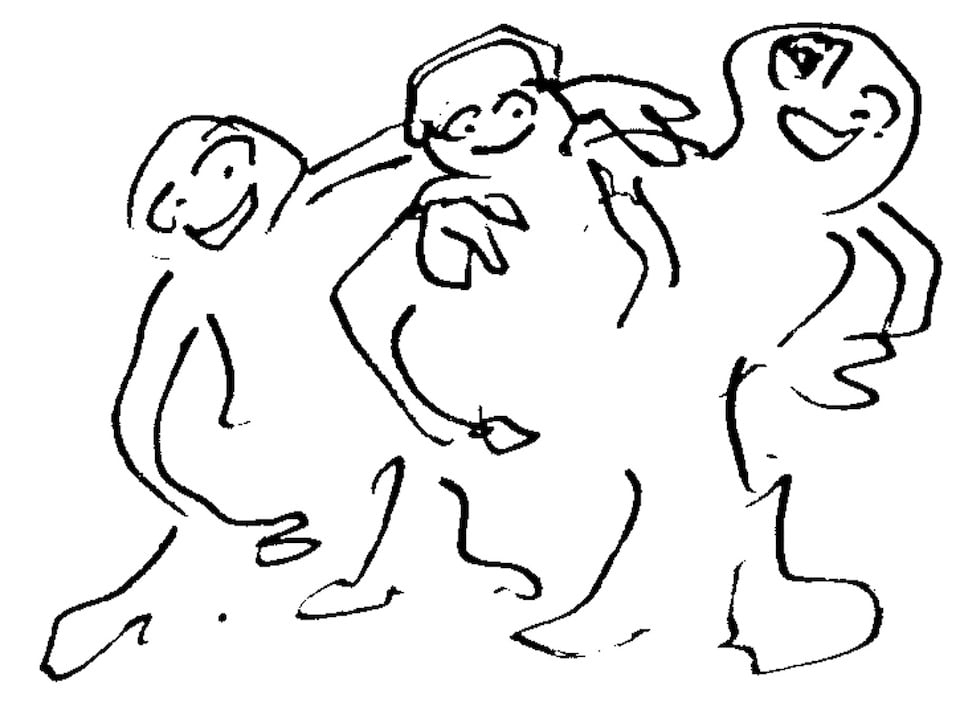The Great Exodus
31. Childhood
This stage is when we begin to experiment or ‘play’ with the power of conscious free will.

Drawing by Jeremy Griffith © 1996 Fedmex Pty Ltd
Page 141 of
PDF Version Eventually, consciousness, the ability to understand the relationships between cause and effect, developed sufficiently for experiments in the management of life from a basis of understanding to actively begin. This stage when consciousness has sufficiently developed to begin experimenting in self-management is what we call childhood. As was mentioned at the conclusion of Section 17, infancy is when we become sufficiently conscious to realise ‘I exist’ while childhood is when we play with the power of free will and, as will shortly be described, adolescence is when we search for our identity, in particular understanding the dilemma of the upset state of our human condition. Infancy is ‘I am’, childhood is ‘I can’ and adolescence is ‘but who am I; why am I not ideally behaved?’ Significantly, while experiments in self-management begin in childhood, management of life overall was still controlled by the integratively orientated instincts. Though the mind was starting to think (search for understandings) it was being dominated by an integratively orientated instinctive self. We can expect that any mistakes the intellect made during its first experiments in understanding-based self-management to be repaired by love. Love or integrative behaviour ruled. Children growing up during humanity’s 3 million years in childhood would not have found that ‘grown-ups are certainly very, very odd’, as Antoine de Saint-Exupery’s Little Prince did (The Little Prince, 1945, p. 41 of 91) 2 million years later. Children during humanity’s childhood would have found the world natural or ‘as it should be’. It would have been ‘instinct compliant’, which is what the word ‘natural’ that we so frequently use today really means from a humans’ point of view.
The following are the different stages of childhood.


